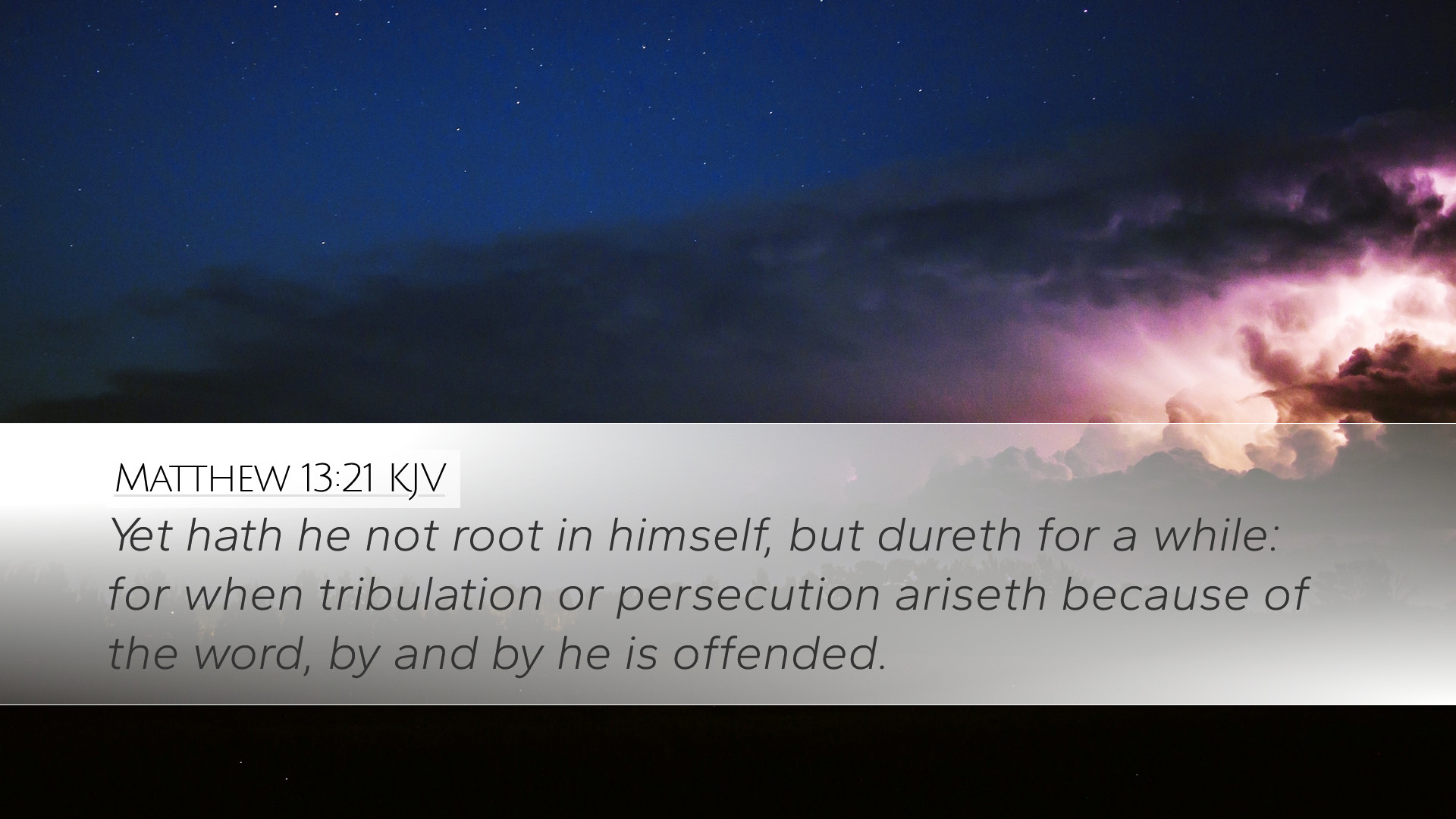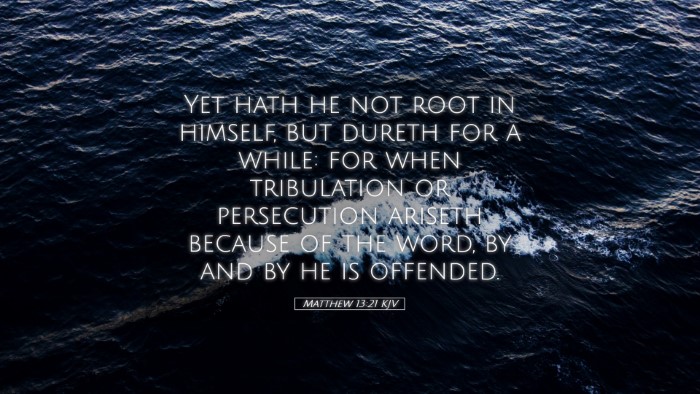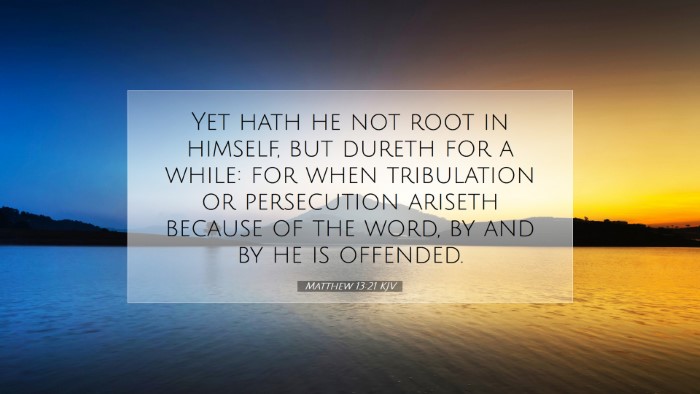Commentary on Matthew 13:21
Verse Reference: Matthew 13:21 - "Yet hath he not root in himself, but endureth for a while: for when tribulation or persecution ariseth because of the word, by and by he is offended."
Overview
This verse is part of the Parable of the Sower, wherein Jesus explains the different responses to the gospel message. The focus here is on those who receive the word with joy, but lack deep roots, leading to their eventual failure when faced with trials and tribulations.
Insights from Commentaries
-
Matthew Henry's Commentary
Matthew Henry notes that this verse illustrates the situation of a person who initially receives the gospel with enthusiasm but does not possess a rooted faith. This short-lived excitement is contrasted with the enduring commitment necessary for spiritual growth.
Henry emphasizes that such individuals may be outwardly joyful, but their inability to endure hardship highlights a superficial understanding of their faith. When challenges arise—like tribulation or persecution—they quickly fall away.
He points out that their faith is like a plant in rocky soil, with shallow roots, which means it can easily be uprooted by adverse conditions.
-
Albert Barnes' Notes on the Bible
Barnes elaborates on the concept of 'root' as indicative of a firm foundation in faith. He expounds on how this lack of depth leads to a feeble faith that withers under pressure. He notes that this is emblematic of many believers who fail to seek genuine faith grounded in understanding and commitment.
In his commentary, Barnes warns against the dangers of emotional responses to the gospel, which do not translate into lasting spiritual growth. He asserts that true faith must be accompanied by a deliberate effort to cultivate spiritual resilience and understanding, especially during times of testing.
-
Adam Clarke's Commentary
Clarke offers a thorough analysis of the Greek terms used in this verse, emphasizing the implications of having "no root." He interprets "no root in himself" as failing to internalize the teachings of Christ, suggesting that personal engagement with Scripture is essential for sustaining faith.
Clarke describes tribulation and persecution as inevitable challenges that can either fortify one's faith or expose its frailty. He stresses the necessity for believers to deepen their roots in the Word of God to withstand such trials.
Furthermore, he shares that it is critical for those who accept the gospel to prepare themselves for the inevitable hardships that can arise, thus cultivating a robust spiritual life that can endure through suffering.
Theological Implications
The verse speaks profoundly about the nature of faith and discipleship. In a world ripe with challenges, the necessity for a deeply rooted faith cannot be overstated. The insights from the aforementioned commentaries remind pastors and theologians that congregants may initially respond to the Gospel with enthusiasm, yet the sustainability of that faith must be carefully nurtured.
Matthew 13:21 draws attention to the dangers of a superficial faith, urging leaders to foster environments where deep theological engagement occurs, enabling believers to understand and internalize Scripture so that they can endure.
Practical Applications
- Encouraging Deep Study: Pastors should emphasize the importance of theological education and personal Bible study to equip believers against challenges.
- Providing Support and Community: Cultivating strong church communities can provide encouragement and accountability, helping individuals to stay rooted during difficult times.
- Preparing for Trials: Teaching about the reality of tribulation and persecution prepares believers mentally and spiritually, helping them to anticipate challenges as part of their faith journey.
- Promoting Resilience: Focus on building resilience through prayer, fellowship, and Scripture meditation, which can fortify one's faith against the allure of falling away in times of trouble.
Conclusion
Matthew 13:21 serves as a poignant reminder of the complexities of faith and the necessity for depth in our spiritual lives. By combining insights from the esteemed public domain commentaries, we see the multifaceted nature of this teaching and its implications for believers today. For pastors, students, and theologians, it is a call to cultivate a faith that not only rejoices in the acceptance of the Gospel but is also prepared to steadfastly endure the testing that life inevitably brings.


